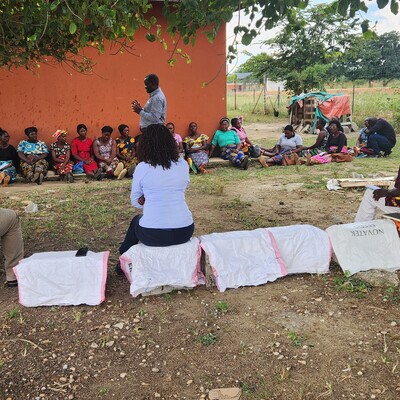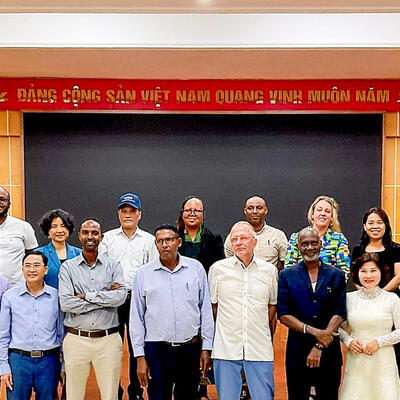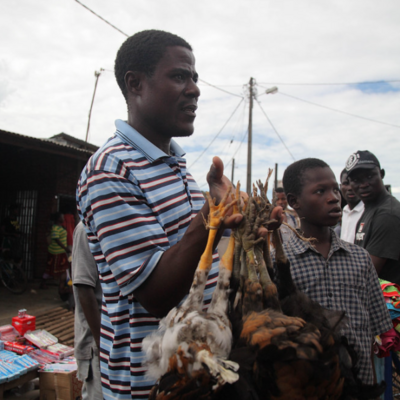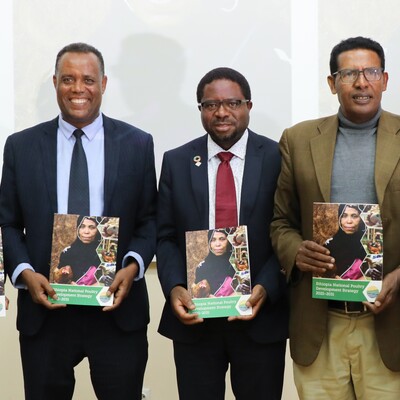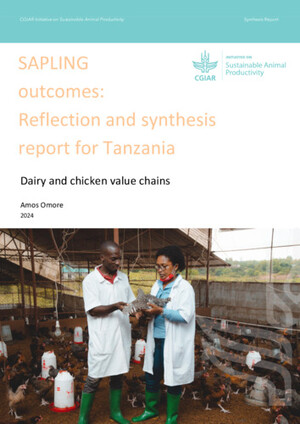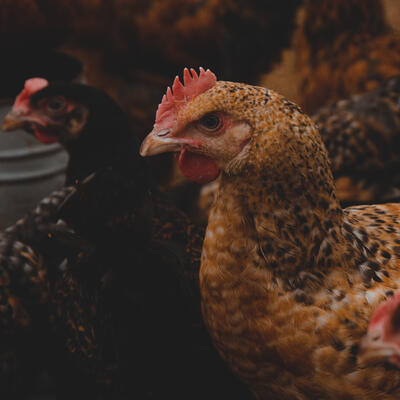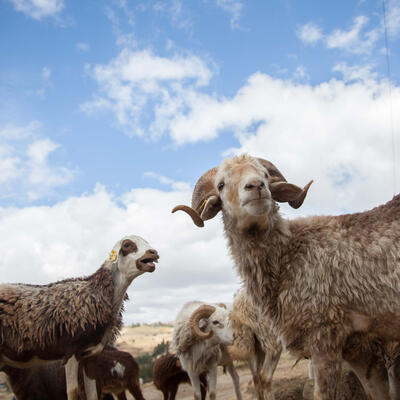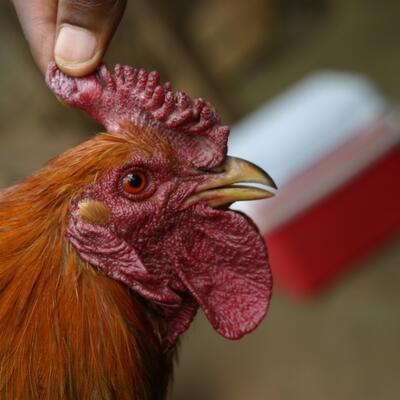
Strengthening food safety in Ouagadougou: Empowering chicken vendors for a safer culinary journey
In the bustling streets of Ouagadougou, Burkina Faso’s capital city, chicken reigns supreme. The streets are lined with informal vendors selling to the city’s inhabitants.
Served either alone or with a side of raw tomatoes and onions, chicken has become the staple for many, and is mostly eaten outside of the household.
Seventy-five per cent of the chicken eaten comes from street vendors who sell upwards of 80,000 chickens per day.
Despite the popularity of chicken sold by street vendors, there is limited perception of food safety risks within the country.
A previous value chain assessment revealed that the country’s poultry consumers are at high risk of foodborne illnesses, due to unsafe transportation, slaughter and cooking techniques.
Foodborne disease not only causes devastating health impacts (in 2017, 1 out of 50 people in Burkina Faso fell ill from consuming poultry meat), but also contributes to productivity losses, medical expenses and other economic costs.
To combat this problem, the Pull-Push project, led by the International Livestock Research Institute (ILRI), is being implemented to improve food safety in the informal market.
At the core of the project is the idea that ‘pull’ (demand for safe food by consumers) and ‘push’ (enforcement of food safety) approaches need to be implemented simultaneously, within an enabling environment, to influence behaviour and improve safety.
To date, the project has trained food safety regulators and launched a media campaign. Now, the project is focusing on the heart of the informal food sector: the chicken vendors themselves.
The training program, which took place from 28 October to 26 November 2022 for the first group and from 17 April to 17 May 2023 for the second group, enhanced the knowledge of chicken street vendors around chicken preparation, hygiene practices and effective business management.
A gender-balanced team of six expert trainers from the ministries of health, livestock, agriculture and trade, as well as the department in charge of food hygiene for the city, developed comprehensive training tools including manuals, modules, guides, pre- and post-training tests and other practical resources.
'It was an opportunity for us as the department in charge of food hygiene to implement activities we use to plan but we cannot carry out due to lack of resources.' A trainer from service d'hygiene

Chicken vendor establishment in Ouagadougou, Burkina Faso. Photo courtesy of ILRI.
An interactive training
The team also implemented participatory training sessions, fostering engagement and interaction among the participants. Two hundred participants, comprising 123 shop owners and 77 employees, took part.
Over nine sessions, each lasting three half days, the training team used PowerPoint presentations, images, videos, group discussions, demonstrations and plenary sessions. The modules covered a range of topics, including an overview of food safety, foodborne diseases, management of live chickens, slaughter processes, carcass management, food preparation, personal hygiene, outlet hygiene and sanitation. Additionally, participants received training on informal business management from a consultant.
In one module, participants learned about the importance of proper handwashing, with a complementary laboratory experiment where participants swabbed their hands and bank notes, as well as coughed and sneezed on an agar plate petri dish. The dish was incubated for 24 hours and presented to participants the following day to show the number of bacteria present in everyday life and the importance of washing hands.
'During the session preparation, it was a bit difficult to mobilise participants, but when they started training, all of them were interested and suggested we do the program regularly.' A trainer from service d'hygiene
In another module, participants were shown photos and videos of good and bad practices of restaurant management and discussed the importance of good practices and how to improve reduce the bad practices.
Additionally, participants were provided with a package of supplies to help with hygienic restaurant practices. The package included disinfectants, protective clothing and food handling materials.
At the end of the training, a certificate of improvement and proof of training was awarded to the vendors to display in their shops where it would be visible to their consumers.
The participants expressed their gratitude for this capacity-building initiative, highlighting its benefits and the need for more such opportunities. They also expressed their willingness to be visited and inspected by the hygiene authorities after the training, demonstrating their commitment to implementing the newly acquired knowledge.
'I have been a chicken griller for several years, but it was my first time participating in such training. I would invite the trainer team to see my outlet after this training.' Training participant.

Food safety packages given to participants. Photo courtesy of ILRI.
Towards sustainability and expansion
In line with the project’s sustainable approach, the training tools developed during the program will be shared with food inspection and regulation agencies, as well as other initiatives. By disseminating these resources, the project aims to extend the impact of the training beyond the initial participants, promoting widespread adoption of best practices in food safety. This step will contribute to the development of a robust food safety framework in Burkina Faso, benefiting both consumers and vendors.
'I am glad we were able to create interest of chicken vendors around good hygiene practices using contextualised messages and tools that align with the local need and capacities,' -Michel Dione, project coordinator.
The Pull-Push project’s training program for chicken street vendors in Ouagadougou is a significant step towards improving food safety in urban informal markets. By equipping value chain actors with essential knowledge and skills, the project enhances hygienic practices and business management. The participants’ enthusiastic response and desire for continued engagement underlines the importance of such capacity-building initiatives.
Moving forward, the project’s focus on sustainability and knowledge sharing will enable training tools to reach a wider audience, strengthening the overall food safety landscape in Burkina Faso. By fostering collaboration between vendors, regulators and consumers, a safer and healthier food environment can flourish.

Participants with certificates of completion. Photo courtesy of ILRI.
More information
Combating foodborne diseases in Burkina Faso through a ‘Pull-Push’ approach






